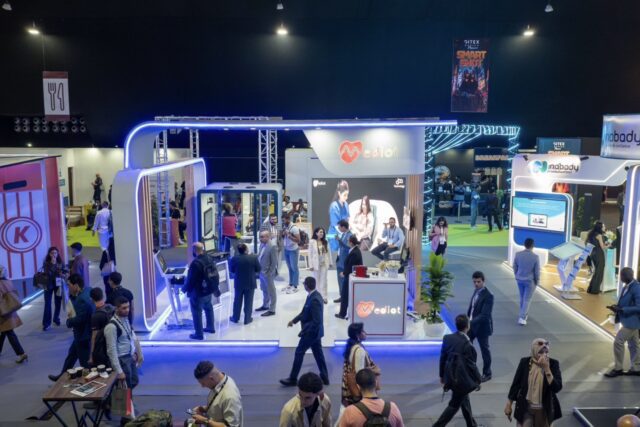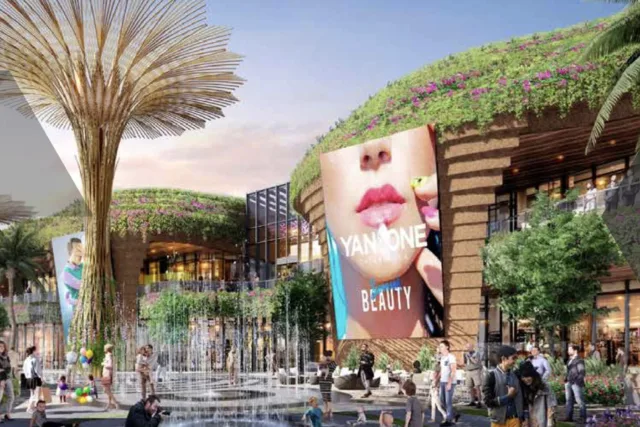
Real Estate Crowdfunding in Morocco: 2025 Investor Guide
For decades, investing in Moroccan real estate meant purchasing an entire property — whether a villa in Marrakech, an apartment in Casablanca, or a beachfront home in Essaouira. This required large amounts of capital, limiting access to wealthy buyers. In 2025, however, real estate crowdfunding in Morocco is disrupting the market. By allowing many investors to pool their funds together, crowdfunding enables access to high-value property projects with smaller contributions. This method gives way to democratising investment and opens doors for both local and international investors.
In this comprehensive guide, we explain what real estate crowdfunding is, why Morocco is an emerging hotspot for this model, its opportunities and risks, and how investors can get started.
What Is Real Estate Crowdfunding?
Real estate crowdfunding is a collective investment model where individuals contribute smaller amounts of capital toward financing a property project. Instead of buying an entire villa or apartment, investors buy fractional shares through online platforms. In return, they receive a portion of the rental income, capital appreciation, or both.
Globally, crowdfunding has gained traction in markets such as the United States, France, and the United Kingdom. Platforms like Fundrise and RealtyMogul allow investors to start with as little as a few hundred dollars. Now, similar models are making their way to Morocco, adapting to local regulations and investor needs.
Why Morocco Is Ideal for Crowdfunding Growth
Several factors make Morocco well positioned for real estate crowdfunding in 2025:
- Affordable Property Prices: Compared to Europe or Dubai, Moroccan property prices remain accessible. This affordability makes fractional investment even more attractive.
- Rising Urbanization: Casablanca, Rabat, and Marrakech continue to expand rapidly, increasing demand for both residential and commercial properties.
- Tourism-Driven Returns: With Marrakech recognized as one of the world’s most visited cities, short-term rental yields remain strong, often between 8% and 12% annually.
- Supportive Investment Climate: Morocco has introduced multiple incentives for investors, including tax benefits for foreign investors.
- Digital Adoption: More Moroccans and expats are comfortable using online platforms for financial and property transactions, setting the stage for digital crowdfunding solutions.
Types of Real Estate Crowdfunding in Morocco
Investors have two primary options when participating in Moroccan crowdfunding:
- Equity Crowdfunding: Investors purchase shares in a property or development project. Returns are generated from rental income and potential resale gains. For example, investors may co-own a luxury villa in Palmeraie, Marrakech.
- Debt Crowdfunding: Instead of ownership, investors lend money to developers in exchange for fixed interest payments. This model resembles bonds and often carries lower risk but limited upside.
Some hybrid platforms may combine both models, offering equity stakes alongside fixed-interest returns.
Benefits of Real Estate Crowdfunding Morocco
The advantages of this model extend to both domestic and foreign investors:
- Lower Entry Barriers: Instead of needing €200,000 or more, investors can start with as little as €1,000–€5,000.
- Diversification: Rather than placing all capital into a single property, investors can spread risk across multiple projects — for example, a Marrakech riad, an eco-lodge in Agadir, and an apartment in Casablanca.
- Access to Premium Assets: High-value developments, luxury hotels, and prime villas become accessible to small and mid-level investors.
- Passive Income: Investors earn rental yields without the stress of managing tenants or property upkeep.
- Transparency: Some platforms integrate blockchain contracts, making transactions more secure and verifiable.
Challenges and Risks of Real Estate Crowdfunding Morocco
Despite its potential, real estate crowdfunding Morocco carries certain risks:
- Regulatory Uncertainty: Moroccan laws are still adapting to crowdfunding. Unlike France, where regulations are well-defined, Morocco’s framework is evolving.
- Platform Risk: Not all crowdfunding platforms are trustworthy. Investors must research platform reputation, project history, and legal safeguards.
- Liquidity Concerns: Selling your shares in a project may not be as simple as selling a physical property.
- Market Fluctuations: Tourism demand, economic shifts, or political changes can impact returns.
Case Study: Marrakech Villa Development
Consider a villa development in Guéliz, Marrakech, valued at €2 million:
- Through crowdfunding, 400 investors each contribute €5,000.
- The villas are managed as luxury short-term rentals, generating annual yields of 9%.
- Investors receive quarterly payouts proportional to their contribution.
- After 7 years, the project sells for €2.6 million, and capital gains are distributed.
This example demonstrates how ordinary investors can access high-yield properties that would otherwise be unaffordable.
Comparing Crowdfunding to Traditional Investment
Traditional investors purchase properties outright, enjoying full control but shouldering high costs and responsibilities. Crowdfunding, by contrast, reduces entry costs and outsources management.
For some investors, direct ownership remains preferable, especially if they want personal use of the property. See our guide on whether 2025 is the right time to buy property in Marrakech for insights into direct purchases.
Legal and Regulatory Considerations
The Moroccan government has already implemented regulations for crowdfunding in other sectors, and extensions to real estate in Morocco are expected soon. Key areas to watch include:
- Ownership Rights: Ensuring that investors have legal claims over fractional property shares.
- Investor Protection: Safeguards against fraud or mismanagement by platforms.
- Taxation: Clarifications on how rental income and capital gains are taxed in crowdfunding projects.
Until regulations are formalized, investors should work closely with legal experts and established agencies. Our guide on avoiding property scams is a useful resource for ensuring safe investments.
Future Outlook for Real Estate Crowdfunding in Morocco
Global platforms are exploring entry into North Africa, and Morocco’s stability makes it a likely hub. As awareness grows, expect to see more projects focused on:
- Sustainable Properties: Eco-villas and green housing developments, aligned with trends in sustainable real estate Morocco.
- Tourism-Based Projects: Resorts and hotels targeting Europe’s growing tourist market.
- Urban Redevelopment: Renovation of old riads and apartments in Marrakech and Fes.
FAQs
1. Can foreigners buy retirement homes in Marrakech?
Yes. Foreign buyers can legally own property in Morocco with minimal restrictions. The main requirement is that all transactions go through a notary, who ensures legal compliance. Ownership is typically freehold, meaning retirees have full property rights. Agricultural land is restricted, but urban and residential property is available to foreign retirees.
2. What budget should I set?
Apartments in Gueliz start at around €120,000. Villas in Palmeraie can exceed €500,000 depending on size, amenities, and location. Many retirees choose mid-range properties between €200,000–€350,000, striking a balance between comfort and affordability. Costs are significantly lower than retirement destinations in Spain or Portugal. Using Real Estate Crowdfunding in Morocco can make the budget even lower.
3. Are healthcare facilities reliable?
Yes. Marrakech has modern clinics and hospitals, many with internationally trained doctors. Expats often use private facilities, which provide shorter wait times and high-quality care at affordable rates. International health insurance is strongly recommended for retirees to cover specialized treatments or medical evacuation if necessary.
4. Can retirement properties generate rental income?
Yes. Many retirees rent their homes seasonally through Airbnb or long-term leases. Yields in Marrakech are competitive, ranging from 6%–10% annually. This makes retirement properties both a lifestyle purchase and a financial investment. Retirees often rent their villas during summer while traveling back to Europe.
5. Is it safe for retirees to live in Marrakech?
Marrakech is considered safe, particularly in expat-friendly neighborhoods like Palmeraie and Gueliz. Most gated communities provide 24/7 security. While petty theft can occur in busy markets, retirees living in residential areas report feeling secure. As with any city, it’s best to take basic precautions and work with reputable agencies when buying property.
6. Do I need to speak French or Arabic?
While not required, learning basic French is highly recommended since most legal documents and property transactions are in French. Arabic is useful for daily interactions, especially with locals outside tourist zones. Many expats get by with English in urban areas, but fluency in French makes integration and administrative processes much smoother.
7. What are the visa and residency options for retirees?
Foreign retirees can apply for a long-term residency permit in Morocco. Typically, this involves proving financial stability (such as pensions or savings) and showing proof of accommodation. Residency permits are renewable and allow retirees to stay year-round. Many retirees also benefit from Morocco’s double taxation treaties with countries like France, Spain, and the UK, which simplify tax obligations.
Conclusion
As Morocco’s property market evolves, real estate crowdfunding in Morocco stands out as a revolutionary way to invest. By pooling resources, investors gain access to premium assets, diversify risk, and earn steady returns. While regulatory and market risks exist, the opportunities outweigh the challenges for those who conduct proper due diligence.
At Orchid Island, we specialise in guiding investors through both traditional purchases and innovative models like crowdfunding. Whether you’re looking at eco-friendly villas, tourism properties, or long-term rental opportunities, we can help you find the right fit.
Browse our property listings or contact us today for expert advice tailored to your goals.



Leave a Reply